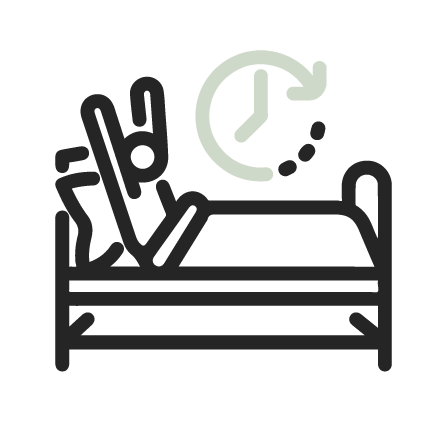What Is Pelvic Floor and the Female Wellness Related Conditions?
The pelvic floor is a group of muscles that form the base of the pelvis, similar to a hammock, that supports the bladder, rectum, small intestine, and (in women) the uterus. These pelvic floor muscles play a crucial role in bladder control, bowel control, and sexual function in both men and women. The pelvic floor muscles also provide support for the spine and core, helping with posture and balance and preventing pelvic organ prolapse.
The related services provided by Venetian Med Spa can help with the involuntary leakage of urine. It's a common problem affecting millions worldwide, especially women and older adults. When the pelvic floor muscles become weak or damaged, they may not be able to properly support and control the bladder, leading to urine leakage.
Some factors that can weaken the pelvic floor and contribute to complications include:
- Pregnancy and childbirth.
- Aging.
- Menopause.
- Certain medical conditions (neurological, diabetes, and obesity).
-
WHAT IS THE DOWNTIME?
Downtime depends on the complexity of the surgery. Full recovery may take several months.
-
WILL I HAVE RESTRICTIONS?
Avoid heavy lifting over 10 pounds for six weeks, and do not return to work for at least two weeks for sedentary work or six weeks for those with jobs that include physical labor.
-
WHO IS A GOOD CANDIDATE?
Female, aged 40 or older, and generally in good health.
When to Consider Pelvic Floor & Related Treatments
Pelvic floor and related treatments can be beneficial for those who experience involuntary urine leakage. The leakage can range from an occasional dribble during coughing or sneezing to a sudden, urgent need to urinate that's often difficult to control.
These conditions can significantly impact your daily life:
- Limiting work, social activities, exercise, or travel due to fear of leaks.
- Affecting your emotional well-being and causing embarrassment or anxiety.
- Produces irritation or infections due to constant dampness.
- Lifestyle changes when bladder training, reducing caffeine intake, and managing weight fail to yield significant results.
- Strained relationships with partners or family because of concerns.
- Experiencing depression, anxiety, or decreased self-esteem.
Recovery and Downtime
Following surgery for pelvic floor and related conditions, recovery can vary depending on the specific approach used and individual factors:
- The surgical procedure. More complex or invasive surgeries naturally require longer recuperation periods.
- Initial discomfort. Expect several days to weeks of reduced activity and possible discomfort after surgery.
- Full recovery and symptom improvement may take several months.
- Additional therapies like pelvic floor muscle training might be recommended following surgery.
Before starting any treatment, discuss expected recovery and downtime with your healthcare provider. They can personalize the information based on your specific situation and chosen approach.
You can optimize recovery and minimize downtime by following your healthcare provider's instructions, prioritizing adequate rest, and avoiding strenuous activities.

Venetian Medical Spa offers a variety of non-invasive and minimally invasive treatments for pelvic floor dysfunction. Some options include:
- Pelvic floor muscle training (PFMT): This is a cornerstone of treatment, often guided by a physiotherapist specializing in pelvic health. PFMT involves learning to contract and relax the pelvic floor muscles to improve their strength and coordination.
- Biofeedback: This therapy uses sensors to provide real-time feedback on pelvic floor muscle activity, helping individuals better understand and control their muscles.
- Electrical muscle stimulation (EMS): Gentle electrical currents stimulate the pelvic floor muscles, promoting muscle strengthening and improved function.







